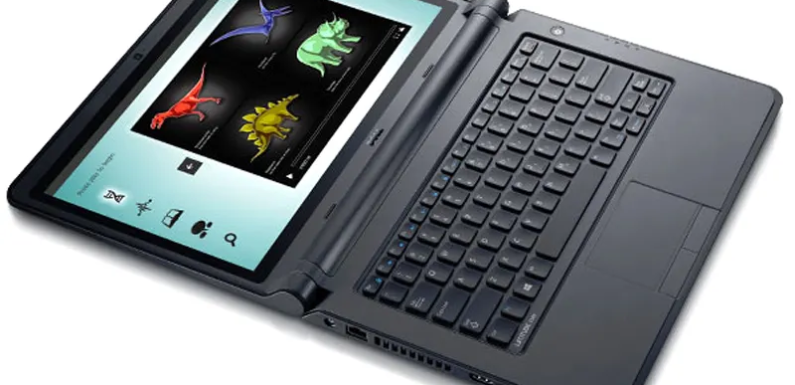
In today’s fast-paced and interconnected world, laptops have become an indispensable tool, revolutionizing the way we work, communicate, and access information. These portable devices have come a long way since their inception, constantly evolving to meet the ever-changing needs of users. From bulky, limited machines to sleek and powerful devices, laptops have reshaped the way we interact with technology and have truly become an extension of ourselves.
The history of laptops traces back to the 1980s, with the first commercially available portable computer, the Osborne 1, weighing a hefty 24 pounds. Since then, manufacturers have relentlessly worked to reduce the size, increase the performance, and improve the functionality of laptops, making them more user-friendly and efficient. Today, laptops come in a multitude of sizes and configurations, catering to various niches, from casual users to professionals and gamers.
One of the most remarkable features of modern laptops is their portability. Gone are the days of lugging around cumbersome machines; today’s laptops are lightweight, sleek, and can be effortlessly slipped into a backpack or briefcase. Whether you’re a digital nomad, a student on the go, or a professional attending meetings, laptops allow you to carry your workspace with you, enhancing productivity and flexibility.
The performance of laptops has seen exponential growth, thanks to advancements in processor technology, memory, and storage. High-performance processors, such as Intel’s Core and AMD’s Ryzen series, coupled with ample RAM and blazing-fast solid-state drives (SSDs), provide the processing power needed for resource-intensive tasks like video editing, 3D rendering, and gaming. The availability of dedicated graphics cards in many laptops has further opened doors for gamers and creative professionals who require top-tier visuals and performance.
In addition to the internal hardware, laptop displays have also undergone significant improvements. From standard LCD screens to vibrant LED-backlit displays, and now even OLED panels, laptops offer stunning visuals and vibrant colors. High-resolution displays with thin bezels enhance the viewing experience, making laptops ideal for media consumption, design work, and immersive gaming.
Battery technology has also played a pivotal role in making laptops truly portable. Modern laptops employ advanced lithium-ion batteries that offer longer life and faster charging times. Some laptops even feature power-saving technologies, like Intel’s Evo platform or AMD’s SmartShift, which optimize power consumption and extend battery life further. This extended battery life ensures that you can stay productive on the go without constantly hunting for power outlets.
The evolution of laptops has not only impacted individual users but also transformed entire industries. The rise of remote work and telecommuting, accelerated by global events, has showcased the crucial role laptops play in maintaining business continuity. Collaborative tools, video conferencing, and cloud-based services are now seamlessly integrated into the laptop experience, enabling teams to stay connected and productive irrespective of their physical location.
While we celebrate the myriad of advancements, it’s essential to address the challenges that come with technological progress. As laptops become more sophisticated, concerns regarding e-waste and sustainability have also emerged. Manufacturers are increasingly focusing on eco-friendly materials and energy-efficient components to minimize their environmental impact. Additionally, the rise of modular laptops, where components can be upgraded or replaced individually, is gaining traction, promoting a more sustainable approach to computing.
Looking ahead, the future of laptops is promising. With ongoing research in areas like artificial intelligence, battery technology, and flexible displays, we can expect even more innovative and exciting features in the coming years. Concepts such as foldable laptops, dual-screen devices, and enhanced voice and gesture control could redefine the way we interact with these machines.
In conclusion, laptops have evolved from clunky, heavy devices to sleek, powerful tools that empower us to work, learn, and communicate wherever we go. The ongoing advancements in technology continue to shape the laptop landscape, providing us with more capable and versatile machines. As laptops continue to transform, they will undoubtedly remain at the forefront of modern life, revolutionizing the way we live and work in the digital age.

